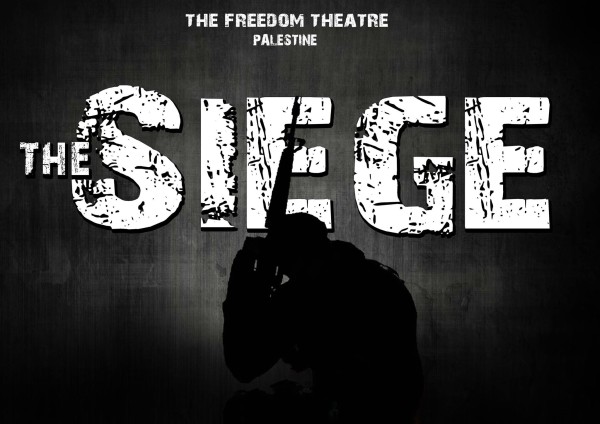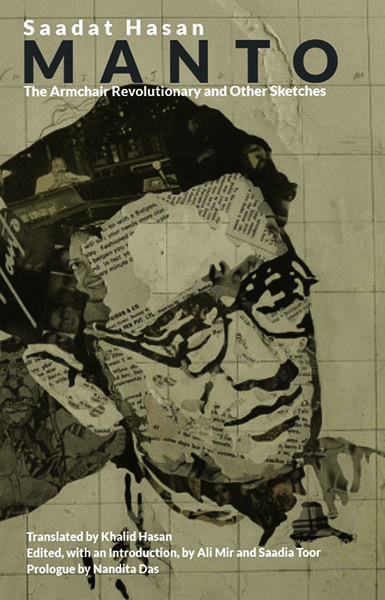
Rights and freedom of women have always been a burning issue. The problem of Muslim women in this connection has become especially controversial. Muslims constitute more than 14 percent of India’s total population, fifty per cent of this vast population are Muslim women. The unhappy fact in India is that women of the Muslim community have been almost as much suppressed or oppressed as women in general within Indian society. It is only the form and types of of exploitation that have varied between one religious community to another.
Within Islam, discussions on women’s status have been discussed in detail. The Quran itself has laid down rules regarding matrimonial relations, the social position of women, and their legal and economic rights. It has prescribed certain laws regarding maintenance, dower, and inheritance and sharing of property by women in their different capacities as a daughter, sister, mother and wife.
In practice, however, Indian Muslim women are less assertive in enjoying these rights granted to them. The reason lies in the lack of awareness of these rights granted within religion itself; and this leads further to a sense of helplessness. This state of affairs prevailing among large sections of the Indian Muslim women is not only keeping them in a state that amounts to a denial of their basic rights but is also hampering their full and complete contribution to the social, political and economic life of their community, and in their participation in the development of Indian society as a whole.
Marriage and Mehr
Islam has not laid down a definite age of marriage for girls or boys. The Quran is silent about this. In pre Islamic days the custom among the Arabs allowed the father to marry off his daughter to whomever he liked and at whatever age the girl was. Islam introduced certain changes and laid down a general rule, namely, that the girl should not be married off by her father against her own will. The implicit pre-requisite, the agreement of the girl being a necessary condition to the nuptial contract, could hence be used (in interpretation) as the basis for interpreting the age of the girl at which she could be considered fit for entering into matrimonial relations.
There is an instance of the Prophet’s view on this subject. A young girl come before the Prophet perplexed and anxious; she exclaimed,
“No Messenger of Allah from the hand of this father!”
“But what has your father done to you,” the Prophet asked.
“He has a nephew she replied,” and he has given me in marriage to him before consulting me in the matter.”
“Now that he has done it,” said the Prophet, “you should not oppose it. Agree to it, and be your cousin’s wife.”
“O messenger of Allah I do not like my cousin. How can I be the wife of a man whom I do not like..”
“If you do not like him that is an end to the matter. You have full authority. Go and make the choice of a man whom you would like to marry.”[1]
This makes it quite clear that the opinion of the girl to be married is regarded as decisive to the marriage. According to Muslim Law, marriage is purely an agreement between two persons. At the time of the ‘nikah’ (marriage) the Qadi [2] determines the person who is to act as ‘wali’[3] on behalf of the bride. He requests the ‘wali’ to go to the bride along with two witnesses and ask whether she is ready and willing to marry ‘such and such a man’ with a definite amount as ‘mehr’ (dower). If she says ‘yes’ she is deemed to have agreed to the alliance.
The ‘wali’ returns with the witnesses to the Qadi and informs him that the bride has agreed. The Qadi recites some verses from Q’uran and gets the signature of the bride, bridegroom and ‘wali’ on the ‘nikahnama’ (the marriage register). He too signs in the ‘nikahnama’ in token of his having performed the marriage.
Although there is no need to change the form of marriage, in Jordan there is a provision that a woman, at the time of marriage can stipulate that she will have the right to divorce given specified circumstances or to live in a specified place.
Within the Muslim community the religious text allow the man to have four wives, but on the condition that all four be equally treated, financially and emotionally. The Quran has permitted it under exceptional conditions but these conditions are violated in practice. Several Muslim countries like Turkey, Indonesia, Iran, Iraq, Pakistan, Egypt, Syria etc. have changed their law. In these countries a plurality of wives is positively prohibited, marriage with more than one wife is not permitted except with the permission of the Qadi. In Pakistan no man can now marry a second time if his first wife was alive, unless she documented her consent, something which the Shariat did not provided for.
Marriage and Mehr are importance factors in the life of a Muslim woman. The Mehr (dower) according to Islamic scriptures requires that a man must pay a certain amount of money to the women, he is going to marry. The exact amount of money is determined keeping in view the status of the man. According to Islam if ‘Mehr’ has not been paid by the husband during his lifetime, it has to be paid out of his bequests after his death. Islamic law also lays down that if the husband divorcees his wife he must pay her the Mehr amount and give her a proper maintenance allowance as long as she does not remarry or does not find an alternative support. In the Quran sura ( Chapter) II, ayat (verse) 241 runs as follows:
“Wali Motallaqatay Mata Un Bill Maaroofay Haqqan Alal Muttaqeena”[4]
“For divorced women maintenance should be provided on a reasonable scale. This is a duty on the righteous husband.”
“Kazaleka Yubaiyyanullaho Lahum Ayatehee Law Allakum Taqeloon”[5]
“It is expected that you will use your common sense”.
This arrangement seems reasonable if followed in practice according to the spirit of the precept.
Mehr in the Islamic System
There are a number of verses in the Quran ordaining that the woman’s Mehr belongs to her and not to anyone else, whether father or husband. The Quran says: “..and give unto the women, (whom ye marry) free gift of their marriage portions : But if they of their own accord remit unto you a part there of, then ye are welcome to absorb in (in your wealth).”[6] The Quran encourages man to give as much as possible. It says: “And if ye wish to exchange one wife for another and ye have given unto one of them a sum of money (however great), take nothing from it. Would ye take it by the way of calumny and open wrong?”[7] When the second caliph Hazarat Umar wanted to impose a ceiling on Mehr a woman stood up and recited this verse and said, “when Allah wants men to give a heap of gold (by way of Mehr), who are you to put a ceiling on it?”
Thus according to the scriptures a woman can ask much as a heap of gold by way of Mehr. The Quran also warns men not to take anything away from their wives after giving something to them. The Quran says: “And it is not lawful for you to take any part of what you have given them.”[8]
It is usually asserted that the Mehr money is a good security for the woman in case of any difficulties in her marital life. For example, if and when she is divorced, the Mehr money has to be given to her (but in case the divorce has taken place due to her own fault or volition, she will not get any money). More so, the woman is entitled to her Mehr money) (if not paid) after her husband’s death, the sons have to pay her the Mehr money.
In case the woman dies, then her father and brothers can demand the Mehr money from her husband. This account gives a reasonably secure picture of a woman’s financial position. In reality, however, one finds that very few women can avail of this money.
Payment of Mehr
The Mehr (dower) assist according to the scriptures is that a man must pay a certain amount of money to the woman he is going to marry. The exact amount of money is determined keeping in view the status of the man, and the payment is to be paid either at the time of the marriage itself of at some later date that has been agreed between the practices concerned. According to scriptures, Mehr (dower) may be prompt dower (Muajjal Mehr) or deferred dower (Muwajjal Mehr). Prompt dower is payable immediately after marriage. A wife can refuse to enter into conjugal domicile with her husband until the payment of the prompt dower. Deferred dower is payable on dissolution of the marriage by either death or divorce. In India it has been the general practice, not to pay Mehr money or pay only a part of it. In the vast majority of cases Mehr is a mere paper transaction. Its fixation is more of a ritual than a realistic assessment of women’s general requirement in the event of “talaq”. Moreover, if the husband is unable to pay the Mehr, he requests his wife to forgo it. The request is a form of emotional blackmail to which the wife invariably succumbs. Thus, the concept of Mehr, which was created to guarantee the economic security of a woman, is not presently serving any useful purpose.
Islamic law also lays down that if the husband divorces his wife he must pay her the ‘Mehr’ amount and give her a proper maintenance allowance as long as she does not remarry or does not find an alternative support. This arrangement seems reasonable if followed in practice according to the spirit of the precept. What Islam has laid down for payment by the husband in the form of ‘Mehr’ is to be paid right at the marriage time or later is certainly a guarantee for the protection and maintenance of the woman at the time of divorce or against ill-treatment meted out to her during the period of the marriage, e.g. Islamic traditions have laid down that the husband has no right to compel his wife to suckle the babies, to do domestic work like cooking and washing etc, she can claim a salary from her husband in return for such tasks, or part ways with her husband in return for his demanding that she perform such tasks. She also has the right to part ways with the husband and earn whatever she can, out of a sense of fulfillment, in various occupations.
Divorce and Maintenance
Islam is perhaps the first religion in the world, which has expressly recognised the termination of marriage through divorce. Islam recognizes the right of every husband to divorce his wife with or without reason. But if the wife wishes to leave the husband, she has to persuade the husband to divorce her. This form of divorce is called ‘khula’. In the Quran, there is no mention about wives divorcing their husband. It only speaks of husbands divorcing their wives and lays down rules regarding how to divorce, what treatment to ensure after the divorce, such as maintenance to the divorcee and for the upbringing and custody of the children if any, etc.
To deal with the Quranic position first, a number of Quranic verses mention the rules regarding divorce and its implications in various suras (chapters) of the book.
Talaq was a constant threat to the wife, which could at any time, throw her into a state of social insecurity. In early Arabia, the Arabs used to pronounce talaq and revoke it. To end this practice of the Arabs, Prorhet Mohammed declared that,” of all the permitted things the most detestable is divorce in the eyes of God.”
He affected many reforms in the institution of talaq. In the Quran, the following procedure was prescribed for divorce, “When you divorce women, divorce them for their prescribed time and calculate the number of days prescribed and be careful of (your duty to), God, you Lord. Do not drive them out of their houses, nor should they themselves go forth, unless they commit on open indecency.”[9]
In another verse, the Quran says, “For divorced women a provision in kindness : a Duty for those who ward off (evil).”[10] The Quran ordains, “…….if ye fear a breach between them two in (the husband and the wife) appoint an arbiter from his folk and an arbiter from her folk. If they desire amendment, Allah will make them of one mind”[11].
The pronouncement of talaq may be revocable or irrevocable. The revocable forms of divorce are considered as the “approved” ones and the irrevocable divorce are considered to be the ‘not approved’ category; Prophet Mohammed favored the revocable mode of divorce over the irrevocable forms.
The forms of talaq are classified as follows:-
- Talaqus – sunna i.e. revocable or approved (three sitting).
- Talaq-i-bida i.e. irrevocable or not approved (one sitting).
The subject of divorce has proved a fruitful source of misconception and controversy; but there can be no question that the Quranic verses concerning the treatment of women in divorce are from a position of ‘better humanity and regard for justice.” According to the principles of Islam, whether divorced or widowed, a woman is at liberty to marry again. The only restraint is that they have to wait for a period of three menstrual periods, before re-marrying. The Prophet promoted specific legislation in woman’s favour addressing various domestic situations. The law gave considerable rights to free women. It was obligatory for the husband to pay to the bride, before marriage, what was called ‘Mehr’.
We may say then that though Islam has not given men and women absolute and equal rights, it treats women with respect and honor. Unfortunately, in actual practice, the tendency seems to be to overlook or misinterpret the principles (and orders) in the Quran and consequently to accord to her an inferior status. M. Mujeeb observed that actual practice was based on the custom of the family, which was the custom of the community or the professional group to which the family belonged rather that based on religion.[12]
In the Prophet’s own words and his own life were the best commentary upon the divinely inspired Last Testament or the Final Gospel, i.e. the Holy Quran, we shall see what he himself had to say about women and how he treated members of that sex. Prophet Mohammed has said :-
“The thing which is lawful, but disliked by God, is divorce.”
“The Great Apostle dislike the idea of beating women : Those men who beat their wives do not behave well. He is not of my who teaches a woman to stray.”
“That is the best Muslims whose disposition is best; and the best of you are they who behave best to their wives.”
“God, enjoins upon you to treat women well, for they are your mothers, daughters and aunts.”
“The rights of women are sacred. See that women are maintained in the rights granted to them.”
“A virtuous wife is a man’s best treasure.”
“Do not prevent your women from coming to the Mosque.”[13]
The Sharia
There are four sources from which is derived the Shariah and it if from these that it draws its authority: the Quran, the Sunna, Ijma, and Qiyas. Deemed the “uncreated word of Allah,” the Quran reflects direct divine revelation and is understood to be the primary source of Islamic law. After the Quran, Islamic jurists next turn to the Sunna, considered to be an indirect divine revelation arising out of the Hadiths, or sayings or acts of Mohammed. Ijma refers to the consensus of the grand Mujtahids of the past, a historic process in which, once consensus was reached, provisions became a permanent part of the immutable body of Islamic law. Finally, the fourth source for the Shariah is the Qiyas, or reasoning by analogy, which applies accepted principle(s) or assumption(s) to arrive at a legally binding ruling.
According to Dr. Asghar Ali Engineer it is believed by millions of Muslims across the world that Sharia laws are immutable and represent divine will. This is based on serious misunderstanding.
Sharia is not and cannot be immutable.
Justice being a very important ingredient for Sharia laws, it is clear that there is enough scope within the Islamic Sharia to bring about changes ensuring gender justice. The Quran supports gender equality and so any such change will be in line with the Quranic framework. This will only help clear the misconceptions and contradictions that have crept in on account of different cultural and customary practices.
In fact, as already pointed out, if Muslims had carried out Quranic injunctions, without interjecting dominant (often patriarchal) cultural practices, the Islamic world would have been a great pioneer in ushering gender equality in the world. Unfortunately, feudalism destroyed, in practice, the revolutionary spirit of Quran.[14]
In order to emphasise the principles of gender justice it is high time that we produce female theologians with profound knowledge of the Arabic language. In this context we welcome the recent development of Muslim women as theorists/Qazis. This will help to resolve the grievances regarding family law, especially Islamic personal law, in India.
* Researcher, Gandhian Institute of Studies, Rajghat, Varanasi-221001
[1] Mutahhari Murtada, The Rights of Women in Islam. (Tehran: World Organisation for Islamic Services, 1981), pp-61-61
[2] a Muslim judge who renders decisions according to the
Sharīʿah, the canon law of Islām
[3] A wali (guardian) is a very important and vital aspect in a marriage. It determines whether or not a certain marriage contract (akad nikah) that has been performed is valid. This can be clearly understood from a hadith by the Prophet
[9] George Sale, The Quran, Commonly called the Quran of Mohammed (New York, n.d.) p.560
[12] M.Mujeeb, Islamic Influence on Indian Society (Merrut, 1972), p.91
[13] Allama Sir Abdullah Al-Suhrawardy, The Sayings of Mohammed (1954), pp. 115-117
[14] Asghar Ali Engineer; The Rights of Women in Islam, 2008






.jpg)




